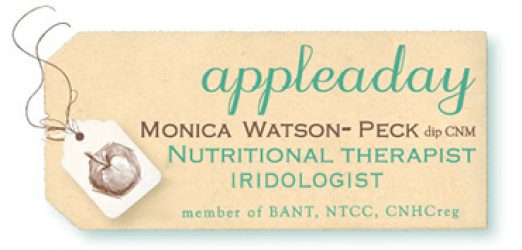I was talking about the Special Carbohydrate Diet (SCD) with a client yesterday, and how there are similarities to the paleo diet in that the foods recommended are the ones that early man ate before agriculture began.
If we think what a positive impact agriculture has had, giving us a global food source which many cultures literally rely on, why is it that grains can have such a negative impact on some people?
According to Breakingtheviciouscycle.info, a SCD site which offers loads of information, testimonials and recipes, we evolved over millions of years, eating predominantly meat, fish, eggs, vegetables, nuts and fruits.
Starches, legumes (lentils, chickpeas, borlotti beans and so on), and grains (bread, pasta, crispbreads, biscuits, cakes…. I’m being very explicit here for anyone in denial ;), are considered the new foods on the block.
The complex carbohydrates, the disaccharides and polysaccharides in these ‘new’ foods are simply harder to digest, especially for people whose digestions are more sensitive, reactive or inflammed due to a number of other possible underlying causes apart from diet.
Keeping it simple, getting back-to-basics (ie. early man diet!) seems to work wonders in people who have digestive problems – in particular those with IBD such as Crohn’s disease of Ulcerative colitis (UC).
This morning a fascinating blog from Timeforwellness popped into my inbox and, again, the topic of SCD came up. This time discussion of a study looking into the benefits of SCD regarding infectious bowel diseases.
A small study of 12 patients set out to assess the impact of SCD in paediatric patients with mild to moderate Crohn’s or Ulcerative Colitis.
The results were so heartening!
After 12 weeks on the diet, disease activity had decreased considerably for both diseases, and the C-reactive protein (CRP is one of a few inflammatory markers used in practice to measure ‘inflammation’ in the body) had normalized in most patients. Even the stool analyses showed significant changes in microbial composition.
For 10 of the 12 patients, dietary therapy proved to be extremely effective.
Remission and normalization in patients with IBD is what anyone with these diseases would hope for.
As the SCD is quite limiting, it’s best to work with a health professional or nutritional therapist who will help put a diet plan together and also help you rule out other triggers or mediators in the disease process.

